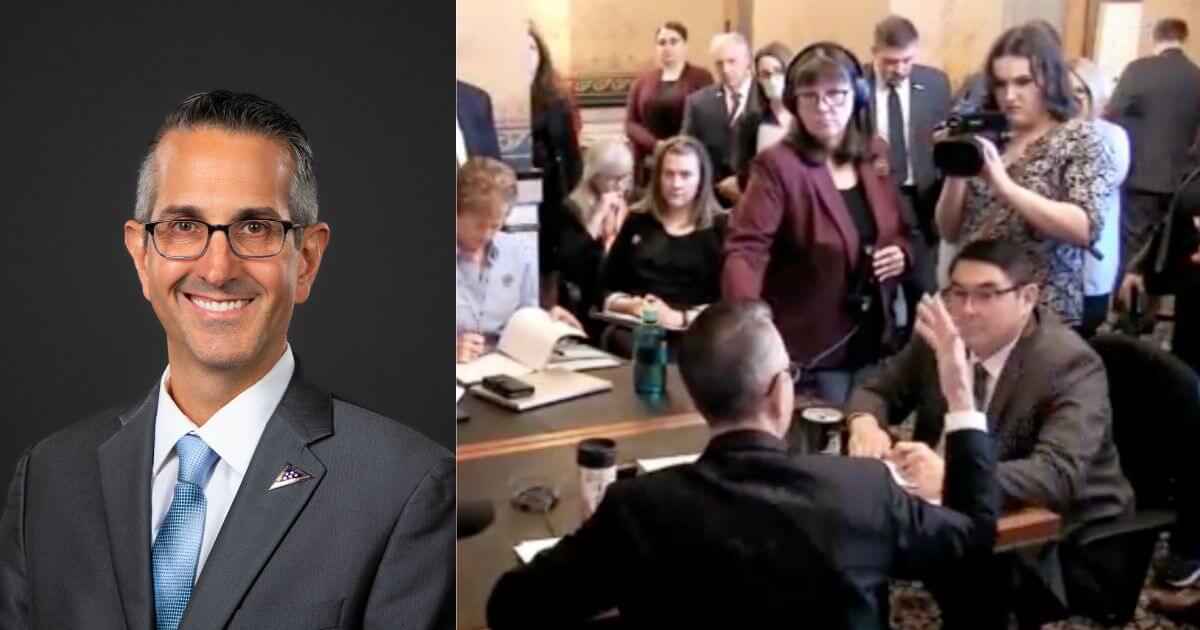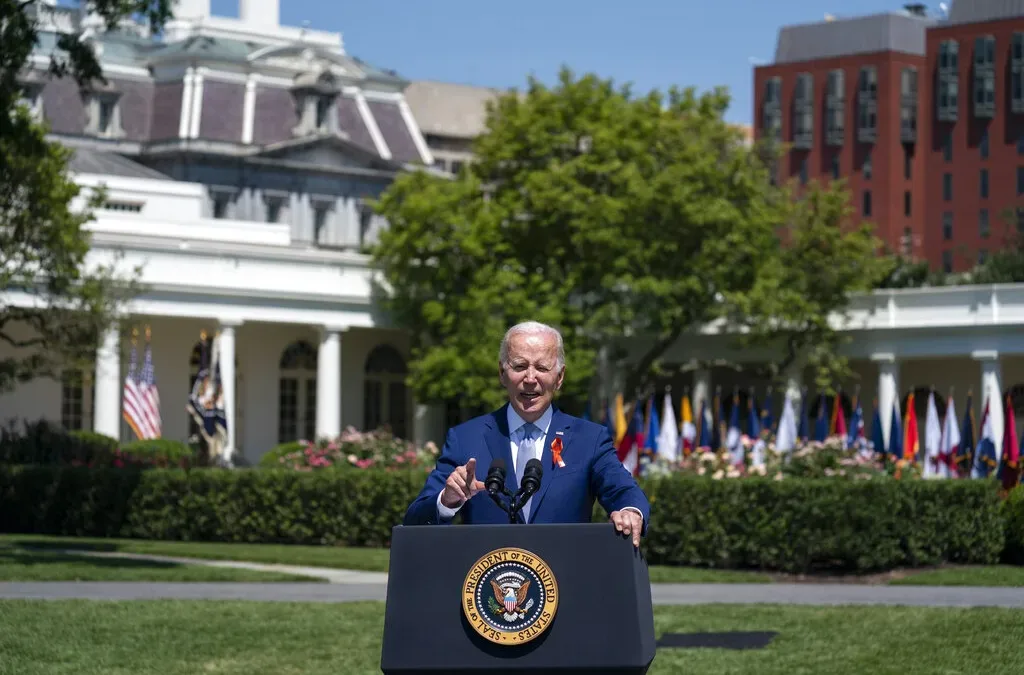
Rep. Joel Fry
Rep. Joel Fry (R-Osceola) says it’s a “false narrative” that two bills that kick thousands of Iowans off SNAP and Medicaid are about taking food and health care away from those people.
“This is not about taking Medicaid or food assistance away from anybody, so as the narrative continues out in the lobby, if that’s what you continue with—the narrative—you’re all false and wrong,” Fry said. “The second thing I would say is that this bill is making sure that Iowans who are eligible for these benefits actually receive these benefits. If we want a sustainable program, it is incumbent upon the legislature to make sure that we are protecting the tax dollar and is going to the right individual at the right moment in time.”
Fry made the comments during a Tuesday subcommittee hearing on SF 494. This was one of two subcommittees he chaired that day related to bills that would make it more difficult for Iowans to receive public assistance benefits such as federal Supplemental Nutrition Assistance Program (SNAP) and Medicaid coverage
In 3-2 party-line votes, SF 494 and HF 613 advanced out of subcommittees chaired by Fry.
[inline-ad id=0]
SF 494, which has passed through the Iowa Senate, forces Iowans who already qualify for SNAP to jump through additional hoops, including new identity verification and asset testing requirements.
According to the nonpartisan Iowa Legislative Services Agency (LSA), it would cost about $7.9 million over two years to implement SF 494, which is about four time times what it cost annually to currently administer SNAP benefits. It would also require the Iowa Department of Health and Human Services to hire 219 full-time employees by 2026 to administer.
The LSA also notes that 8,000 Iowans would lose their Medicaid benefits and 2,800 would lose their SNAP benefits under SF 494.
HF 613 creates similar challenges for people to qualify for public assistance benefits including a verification system, asset testing, etc., but it also has work requirement provisions for SNAP and Medicaid recipients. A fiscal note on this bill is not available yet.
Both bills would also “require various one-time IT systems costs to update interfaces, link with required data sources and systems, and build a dashboard and reporting requirements.”
[inline-ad id=”1″]
According to the US Department of Agriculture, which pays the full cost of SNAP benefits, 85% of “working poor” households in Iowa received SNAP in 2019, the most recent year data was available. The federal government defines working poor as “people who spent at least 27 weeks in the labor force (that is, working or looking for work) but whose incomes still fell below the official poverty level.” So most Iowans who receive SNAP are already working or are seeking a job without the need for extra paperwork.
Fry said his motivation for continuing the conversations on these bills was to make sure the right people benefit from these public resources; however, there is little fraud in Iowa’s SNAP and Medicare programs.
A little less than 900,000 people are enrolled in Iowa’s Medicaid program. Iowa’s Medicaid Fraud Control Unit only had 287 open fraud causes, according to its latest fiscal year report. Of those 287 cases, 230 were multi-state civil cases and 57 were in-state civil fraud cases.
For SNAP benefits, Iowa disqualified 322 out of 305,045 people and convicted just four people of fraud during the 2020 fiscal year. That’s a fraud rate of one-thousandth of one percent.
[inline-ad id=”2″]
During the hearing for SF 494, Rep. Timi M. Brown-Powers (D-Waterloo) had some issues with the bill including the provision that requires the creation of 219 new positions as Iowa deals with an existing workforce shortage that some Republican legislators want to use child labor to fill.
“I’m afraid of some of the unintended consequences if we are really dropping 8,000 Medicaid patients, 2,800 SNAP—how many of those are kids,” she said.
Rep. Heather Matson (D-Ankeny) also argued that it wouldn’t be a cost-saving measure for Iowans since state taxpayers also pay the federal taxes that fund these programs.
“So our money is leaving the state to go to the federal government to be redistributed whether it’s back to us or around, but to be clear, this is not money that would be able to use for something else,” Maton said.
“We would just not get that money anymore. So instead of making sure that is $42 million from the federal government that could go toward to the SNAP and Medicaid programs, we just wouldn’t get it. So in essence, we as Iowans would be saying we are no longer going to get the benefits of what we are paying our tax dollars for.”
by Ty Rushing
03/28/23
[inline-ad id=”0″]
If you enjoy stories like these, make sure to sign up for Iowa Starting Line’s main newsletter and/or our working class-focused Worker’s Almanac newsletter.
To contact Senior Editor Ty Rushing for tips or story ideas, email him at [email protected] or find him on social media @Rushthewriter.
Iowa Starting Line is part of an independent news network and focuses on how state and national decisions impact Iowans’ daily lives. We rely on your financial support to keep our stories free for all to read. You can contribute to us here. Also follow us on Facebook and Twitter.
Politics

Biden announces new action to address gun sale loopholes
The Biden administration on Thursday announced new action to crack down on the sale of firearms without background checks and prevent the illegal...

Biden cancels student loan debt for 2,690 more Iowans
The Biden administration on Friday announced its cancellation of an additional $7.4 billion in student debt for 277,000 borrowers, including 2,690...
Local News

No more Kum & Go? New owner Maverik of Utah retiring famous brand
Will Kum & Go have come and gone by next year? One new report claims that's the plan by the store's new owners. The Iowa-based convenience store...

Here’s a recap of the biggest headlines Iowa celebs made In 2023
For these famous Iowans, 2023 was a year of controversy, career highlights, and full-circle moments. Here’s how 2023 went for the following Iowans:...





